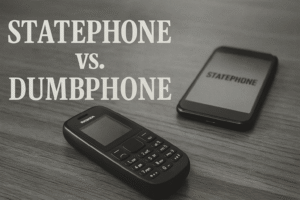
How Sir John Glubb’s warning maps perfectly onto our digital age
The Wheel That Keeps Turning
Human history doesn’t move in straight lines. It turns.
Empires rise, enjoy their moment in the sun, and fall back into shadow. Each generation swears this time will be different, but the rhythm rarely changes. Freedom and tyranny take turns holding the reins, and the cycle continues.
The historian Sir John Glubb, in his 1976 essay The Fate of Empires, described this repeating arc of civilisation in seven stages:
“From bondage to spiritual faith; from faith to courage; from courage to liberty; from liberty to abundance; from abundance to selfishness; from selfishness to apathy; from apathy to dependence; from dependence back into bondage.”
His words read less like prophecy and more like diagnosis — a recurring illness of human comfort and forgetfulness.
Mapping the Modern Cycle
If we trace Glubb’s pattern across the past seventy years, the picture becomes disturbingly clear.
1950s – Faith Restored:
After the trauma of war, societies rebuilt with humility and shared purpose. Freedom meant responsibility.
1960s – Courage in Action:
Civil rights, cultural revolution, and a belief that ordinary people could change the world. The high tide of liberty.
1970s–1980s – Liberty to Abundance:
Freedom became normal. Material progress replaced moral progress. Consumerism arrived, and comfort took centre stage.
1990s–2000s – Abundance to Selfishness:
The age of globalisation and digital convenience. We had everything — except restraint.
2010s – Selfishness to Apathy:
Information overload dulled curiosity. Division replaced discussion. Many stopped believing change was possible.
2020s – Apathy to Dependence:
Reliance on digital systems, surveillance, and financial control grows by the day. The coming of Digital ID and programmable economies marks the quiet slide into a new kind of bondage — invisible, efficient, and voluntary.
The New Bondage
This isn’t the tyranny of boots and whips.
It’s a softer form — bondage through convenience.
Each small surrender of privacy or autonomy feels harmless until the sum of those comforts becomes a cage.
History shows the pattern is collective.
But Glubb’s message, when you read it closely, is that the response must be individual. Civilisations may rise and fall, but conscience doesn’t have to.
Keeping the Torch Lit
Every age of bondage begins to crumble when a few people quietly refuse to conform — not through violence or grand speeches, but through the daily choice to stay human:
- Think freely when the crowd repeats.
- Create honestly when trends demand imitation.
- Live locally and responsibly when systems grow impersonal.
That’s how the next “faith to courage” phase begins — not in palaces, but in small rooms, sheds, cafés, and workshops where people still believe truth matters.
The Cycle Can’t Be Stopped — But It Can Be Survived
We may not stop the machinery turning, but we can choose how it finds us.
With awareness. With dignity. And with a quiet refusal to become programmable.
Because liberty isn’t something governments grant — it’s something individuals practice, even in the darkest seasons.
Hope isn’t what they promise you. It’s how you carry on when they don’t deliver. — Dave Carrera



